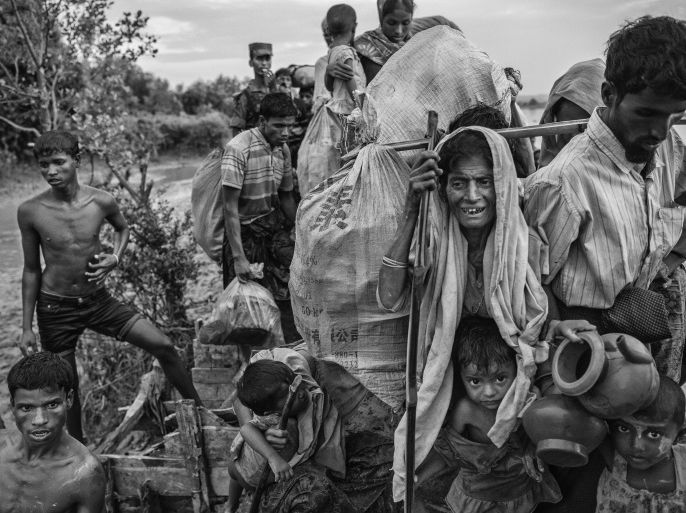ميانمار لمجلس الأمن: الوقت ليس مناسبا للزيارة

قال رئيس مجلس الأمن الدولي إن حكومة ميانمار أبلغته الشهر الجاري بأن الوقت "ليس مناسبا" لزيارة وفد المجلس لأراضيها للاطلاع عن قرب على أزمة اللاجئين الروهينغا.
وأوضح السفير الكويتي في الأمم المتحدة منصور العتيبي -الذي تتولى بلاده الرئاسة الشهرية لمجلس الأمن الدولي- أن سلطات ميانمار لا تعارض الزيارة بحد ذاتها التي يمكن أن تجري في مارس/آذار أو أبريل/نيسان القادمين.
وأضاف أن بإمكان من سيتولى لاحقا رئاسة المجلس "خلال الشهرين القادمين تنظيمها"، ذاكرا أن سلطات رانغون تحاول تنظيم زيارة لدبلوماسيين للبلاد، كما أكدت أن "التوتر في ولاية أراكان حاليا كبير جدا".
وتنتقل الرئاسة الشهرية لمجلس الأمن في مارس/آذار إلى هولندا، وبعده للبيرو في أبريل /نيسان.
وغادر نحو 655 ألفا من الروهينغا بلادهم منذ نهاية أغسطس/آب الماضي، هربا من حملة عسكرية اعتبرتها الأمم المتحدة تطهيرا عرقيا، وهو ما تنفيه ميانمار.
وأعلنت بنغلاديش مؤخرا أن عدد الروهينغا الموجودين على أراضيها بلغ مليونين. ويشمل هذا الرقم اللاجئين الذين وصلوا البلاد في أزمات سابقة.
يذكر أن ميانمار -التي تقطنها أغلبية بوذية- تحرم أقلية المسلمين الروهينغا من الحصول على حقوقهم الأساسية مثل المواطنة والرعاية الصحية والتعليم، بموجب قانون المواطنة عام 1982.